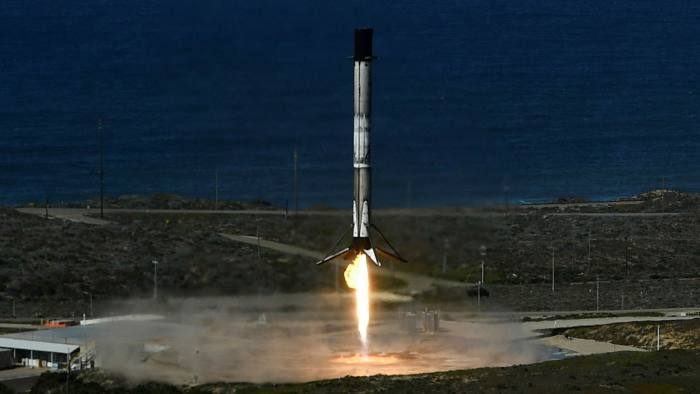European Union plan for LEO satellite internet system
The European Union is considering revised plans for a low-Earth orbit (LEO) satellite internet system that would take on SpaceX/Starlink, OneWeb, Amazon Kuiper, Telesat and other LEO satellite internet players in a bid to lessen Europe’s reliance on US technology for secure connectivity, the Financial Times reports (paywall applies). The Secure Communications Initiative, as the proposed system is called, is the brainchild of Thierry Breton, the EU’s internal market commissioner, who wants the bloc to build a third satellite constellation for secure Internet access. The EU already has the Galileo system for navigation and Copernicus for Earth observation. Similar proposals have already been rejected twice, says the report, but Breton is hoping these amended plans will be able to snake their way through the EU’s notoriously slow-moving internal approvals process.
Breton told a press conference in Strasbourg on Tuesday: “This is of central importance in terms of our strategic and technical sovereignty.” He added that it would be connected to other unnamed satellite constellations to save money. Regarding obtaining the spectrum to broadcast the signals, he said: “We know where to find this frequency. It is not an issue.”
Context of the Proposal- from the Explanatory Memorandum:
The general objective of this proposal is to establish a Union secure satellite communication system (hereafter the ‘Programme’) that ensures the provision of worldwide secure, flexible and resilient satellite communication services to the Union and Member States governmental entities. Satellite communications provide ubiquitous coverage, which is complementary to terrestrial networks (ground-based in a digital communication in areas where terrestrial networks are absent (e.g. oceans, during flights, or in remote locations / islands with no cellular or broadband coverage), have been destroyed (e.g. during flooding events, or forest fires) or where local networks cannot be trusted (in crisis situations, or for diplomatic services in third countries or for sensitive governmental operations).
The signals from the new system would be encrypted and offered to Europe as well as Africa to give that continent an alternative to Chinese-built infrastructure. It would also provide a back-up in case of cyber attacks on broadband networks.

The reusable first stage of a SpaceX Falcon 9 rocket returns to land after deploying a satellite this month. The EU wants its own sovereign satellite internet system © Patrick T Fallon/AFP/Getty
References:
https://www.ft.com/content/329d7c77-b4fe-4753-910b-60a4a29eb436
One thought on “European Union plan for LEO satellite internet system”
Comments are closed.



Satellite internet has a very wide scope. Thanks for explaining the satellite internet system here. These are some really wonderful updates you have provided here. I would really like to know more good information from this IEEE Techblog post.